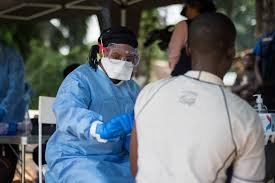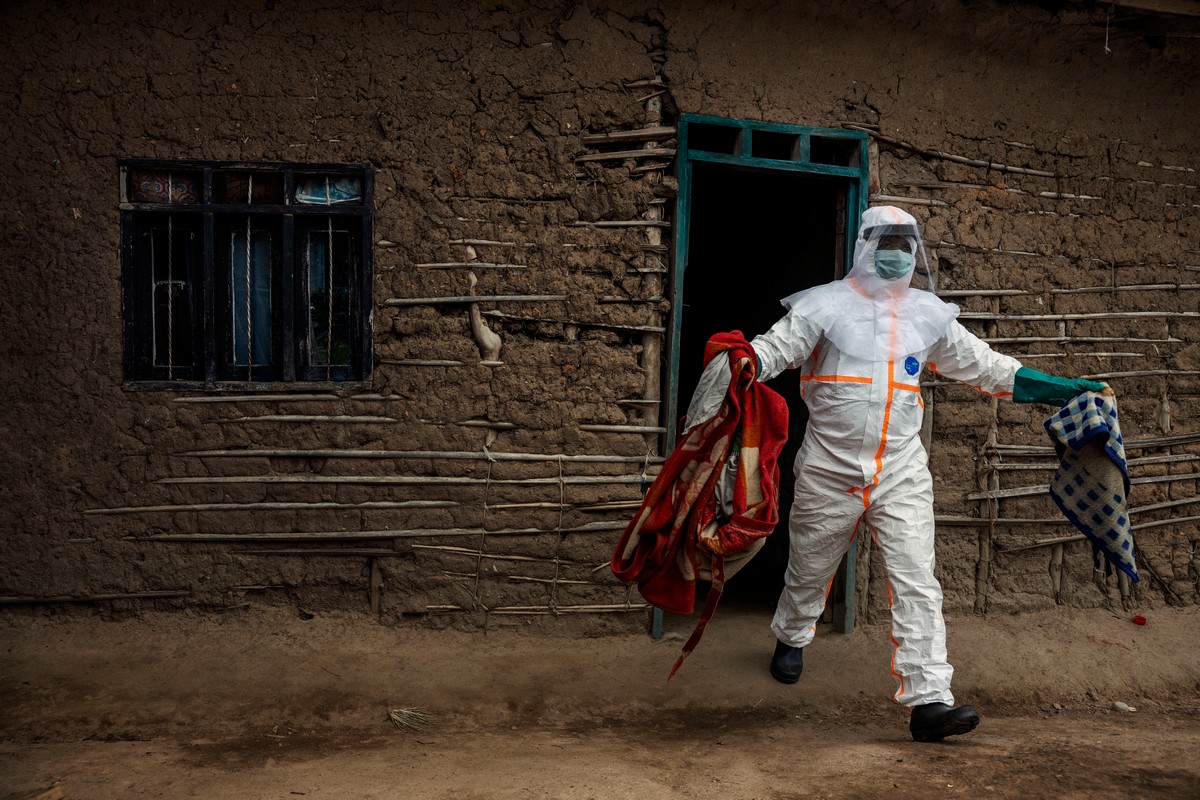Our world is currently shaken to the core by the coronavirus, but it is certainly not the first time viruses have had created havoc. Although the current outbreak is one of the biggest in history, there are many other sinister viruses that have affected people badly. One of them is the deadly Ebola virus.
World Health Organization (WHO), in collaboration with other health authorities, surveyed to know about the experience of Ebola survivors. Health workers were found to be more affected due to a lack of protective equipment and professional training at the early stage of the outbreak. Rebecca Johnson was a 28-year-old nurse from Sierra Leone who has survived Ebola. She acquired the disease while treating the Ebola patients at the Police Training School center in Sierra Leone’s capital. Rebecca shared her experience of sickness and how she was paralyzed with excessive vomiting, diarrhea, and fever with a painful muscular spasm. Despite all this suffering, she eventually recovered from this deadly Ebola virus disease, but the effects did not completely vanish. Rebecca also said to the team that even after recovery, she had to carry her hospital discharge certificate with her at all times to prove her good health as she was stigmatized for getting infected. She managed to tackle such situations wisely and started to help other colleagues in the treatment of victims. She also talked about the economic and social effects of EBV on the country, saying that “I want Ebola to finish so we can get back to normal. My country is drowning – no schools, the economy is in ruins. It’s not easy.”
When there is a will, there is a way, and by following precautionary measures and taking good care of personal hygiene, they survived Ebola. Scroll Below to get some insight into Ebola Virus Disease, symptoms, treatment, and more.

How it all began
In 1976, it firstly emerged in West Africa, where it affected the millions of humans and other primates. Initially, it was thought to be a new strain of ‘Marburg virus‘. The word ‘’Ebola’’ is linked to the Ebola River, which is present in the Democratic Republic of Congo, South Africa. There is a wide variety of strains known to date with a 30-40% difference in nucleotide sequences.
In 2015, World Health Organization (WHO) reported more than 26,000 cases of Ebola virus when the outbreak began in the mentioned year in the regions of Guinea, Sierra Leone, and Liberia where more than 11,000 deaths occurred.
Ebola virus (EBOV), belongs to the filoviridae family that is also termed as ‘’filoviruses’’. These invisible viral entities serve as causative agents of hemorrhagic fever disease in humans and other mammals. Morphologically, it is a filamentous and enveloped virus whose genome is comprised of single-stranded RNA (ssRNA) of almost 19 kb. It is further transcribed and translated to different proteins responsible for various structural and functional roles. These proteins include:
· Nucleoprotein (NP)
· Two virion proteins (VP35 and VP40)
· Surface glycoprotein (GP)
· Two additional viral proteins associated with the membrane (VP30 and VP24)
· RNA- dependent RNA polymerase (L)
· Non-structural soluble protein (sGP)
Mode of transmission and symptoms
Ebola is primarily transmitted from bushmeat and then person to person through body fluids, including blood, sexual fluid, sweat, tears, vomit, saliva, and mucus, etc. After entering the human body, the virus replicates in immune cells circulating in the bloodstream, such as monocytes and macrophages. Once replicated and produced in enough, viral particles get transfers to other regions of the body, including the liver, kidneys, spleen, lungs, etc. leading to the failure of the affected organs.

Symptoms appear almost 2 to 21 days of disease onset that include:
· Intense fever
· Malaise
· Chills
· Nausea
· Retrosternal abdominal pain
· Diarrhea with blood
· Fatigue
· Myalgia
These symptoms usually appear in combination and lead to severe on various body parts, including the gastrointestinal tract, respiratory organs, as well as neurological indications and uncontrolled bleeding that lead to blood disorders such as anemia. The first week of onset is very critical for personal health as the condition of the patient may either get worst or get better leading to death or survival, respectively. As the lethality rate is higher for Ebola almost 83 to 90% hence, the disease severity mostly increases, followed by the death of patients.
Treatment and Control
The high mortality rate associated with the Ebola virus has grabbed the attention of the researchers and pharmaceutical companies to increase the pace of developing efficient and effective therapies against the Ebola virus. Currently, Merck has introduced the vaccine termed as ‘’Ervebo’’ against the Zaire species of Ebola. After successful trials during an outbreak of 2015, more than 25000 patients were protected by using this vaccine. Currently, they had successfully got the vaccine licensed by the European Medicine Agency (EMA) and applied for prequalification by the World Health Organization (WHO). After the WHO prequalification, it will be commercially available at the end of 2020.
As ‘’Prevention is better than cure’’ hence strict precautionary measures must be followed to avoid the spread of this disease. The infected person must be socially isolated soon after the disease onset that is although hard to maintain, one of the best approaches to limit the disease progression. Everyone needs to take proper care of personal hygiene to prevent Ebola virus disease or any other disease as well. There is also a need to consume a healthy diet along with medication to fasten the recovery.
Also Read: First-Ever Ebola Vaccine is Finally Here

Iqra Bibi is BS BIOCHEMISTRY student at Quaid e Azam University. She is serving YOLO as an academic Secretary and Also part of the event management team of various non-profit organizations. She loves to write Urdu poetry and work for its promotion through her Youtube channel “Harf e Junoon”. Her hobbies include novels and book reading.

